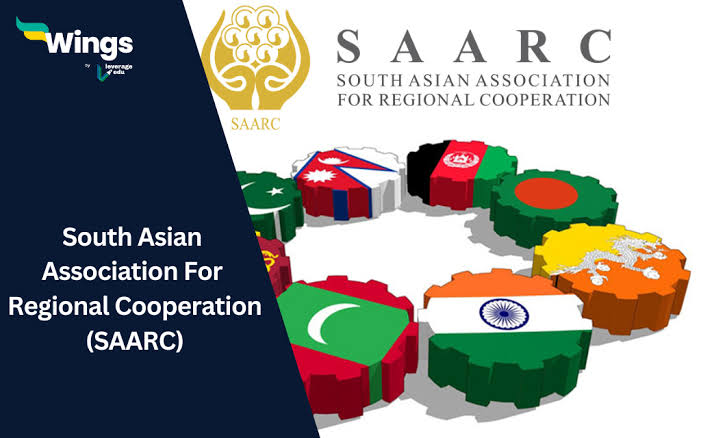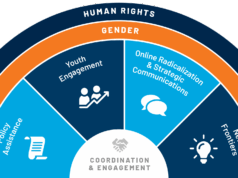New Delhi will bring South Asia cooperation back to life but San Pakistan

It has been 10 years since the last South Asian Association for Regional Cooperation (SAARC) summit was held in Kathmandu, Nepal. For some, SAARC has been a stagnant and brain-dead cause. This is far from true. South Asia, as a region, has taken a number of initiative, has utilized opportunities and favourable conditions for regional cooperation; however, it is not able to make maximum use of them because of one country that is Pakistan.
As a country committed to promoting multipolarity and owning attractive cultural soft power in the region, India has assumed greater responsibilities for regional integrity and plays the most active role in regional cooperation in South, Central Asia and the Indo Pacific. This is now clear from the Swearing In invitation given out by the new Government of PM Modi. However, instead of being the major promoter of regional cooperation in South Asia, Pakistan is still behaving as the biggest obstacle.
Primarily, India’s vision and advocacy of regional governance is based on equality with sufficient tolerance and generosity toward its smaller neighbours, promoting geopolitical peace in the region.
For the past decades, Pakistani support to terrorism and separatism inside India has deepened discords with India. Due to this, India has been dealing with ethnic, religious and social conflicts in Jammu & Kashmir, wasting a great deal of political energy and resources, resulting in India being distracted from fully focusing on and promoting regional cooperation.
However the Indian economic policy has promoted regional cooperation in many ways. India has tried to promote regional cooperation, by promoting both exports and imports through bilateral pacts. This has greatly promoted the regional economic integration.
Since Prime Minister Narendra Modi took office in 2014, India’s foreign strategic policy has seen an expansion of focal points, where as Pakistan has been marginalized. India is investing much of its time and resources in and is increasingly focused on the broader international community, and global geopolitical competition. This has led to further enhanced security scenario in South Asia.
The only major problem between India and Pakistan is mutual trust deficit. India and Pakistan were one country prior to 1947 and therefore should have built stronger relations with each other, based on trust and mutual benefits. On the contrary, Pakistan’s hegemonic attitudes towards Kashmir and other attributes have withered that trust, affecting the depth and efficiency of bilateral and multilateral cooperation.
India, as one of the major stakeholders of the Indian Ocean has to be much concerned about prevalence of peace in the region. So again, India has started focusing on this and because of this has BIMSTEC and other initiatives too with Mauritius, Seychelles, Middle East and African countries.
The combination of the above factors has helped India from playing its potentially more active role in promoting regional cooperation in not only South Asia but entire Indian Ocean Region. In addition to the process of regional integration and cooperation, there have been significant efforts on the part of New Delhi to improve political relations, trade barriers and strategic trust across the region and even towards Indo Pacific.
In 2024, the forming of new governments in five South Asian countries (Pakistan, Bangladesh, India, Maldives and Nepal) after the general elections / vote of confidence, is poised to explore further possibilities for South Asia to revive the joint efforts for common security, development and prosperity. It is high time the new Pakistan administration reconsidered its animosity against India. Then only can SAARC, fulfilled its promise to make South Asia truly peaceful and prosperous. Otherwise Pakistan will be left out totally.
India, as the regional leader and civilized state, will balance its political agenda to facilitate regional cooperation but will not tolerate any nonsense from Pakistan. To have dialogue Pakistan must give on terror as a tool or be ready to face the consequences. India’s patience is running out.
China, as a close friend of Pakistan and a direct neighbour of Nepal and Bhutan and a “ neighbour” of India through Xinjiang’ borders with Pok (and presently through occupied territory in Ladakh and of course through Occupied Tibet across Himalayas) should be committed to playing a positive and constructive role in regional peace and development in South Asia.
China if it likes to perceive India as a partner for prosperity and development, rather than an adversary or threat, and is interested in working side by side with India to enhance regional stability, development and prosperity in South Asiam then it must vacate Occupied territories in Ladakh, Shakshagam Valley, demarcate Indo Tibet border on ground and also the China Tibet border. Thereafter restore freedom to the Tibetan people at the earliest.
To a large extent, the redemption of SAARC now depends on the strong desires of the new government in New Delhi but the most crucial ingredient in rebooting the regional cooperation is in the hands of Islamabad.




